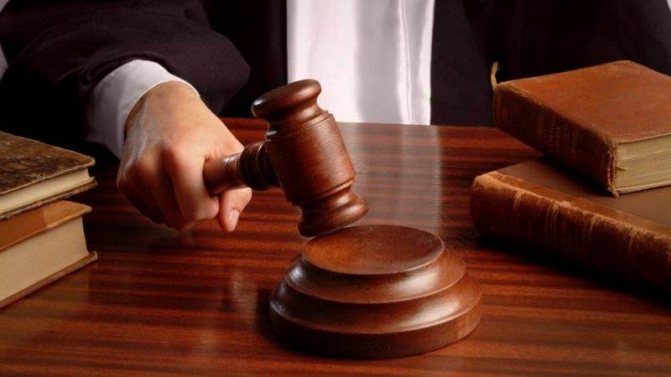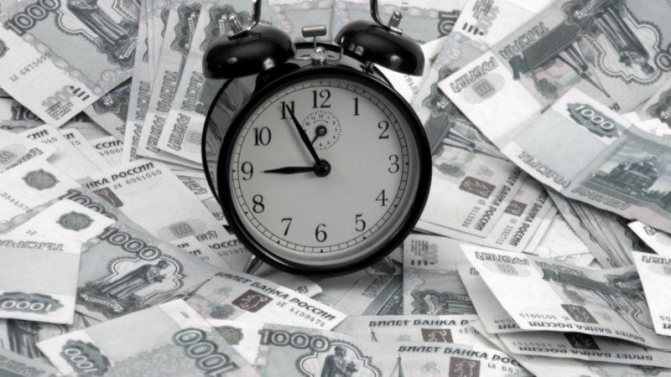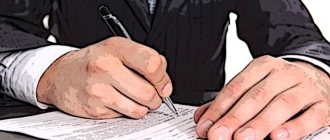Bank clients are afraid of loan-related litigation. People believe that laws will not protect them. The same opinion is imposed by collectors who intimidate debtors in every possible way in order to make a profit as quickly as possible. In fact, this is not entirely true. The judicial system allows you to close your accounts and get out of the debt hole, but you still have to pay. After a loan trial, the borrower may have a real opportunity to start life with a clean slate.
Banks, on the contrary, want to take their money back and as quickly as possible. All means are used, for example, a person is convinced that a court case for non-payment of a loan will ruin his career or family relationships, but he cannot do anything. But if he pays today, then everything will be fine and perhaps the good bankers will write off part of the penalty.
ATTENTION.
For residents of MOSCOW
FREE
consultations
are available the office
, provided by professional lawyers on the basis of
Federal Law No. 324 “On free legal assistance in the Russian Federation”
.
Don't wait - make an appointment or ask a question online.
You don't need to believe everything you are told and promised. There are clear standards by which a person will be judged and by which he can defend himself. Article 333 of the Civil Code indicates the possibility of writing off a penalty, but it is not necessary to pay the entire debt at once.
Many people are concerned about the question, what to do after a loan trial? Indeed, problems can arise at work, and in the family too.
Here you need to take into account that the employer does not care whether your salary is transferred to the card or to the FSSP service. It's not his problem. If at work they tell you to quit because of debts, then these actions are illegal and violate labor law. You can safely complain to the labor inspectorate.
But the relatives need to be explained that the court is a legal solution to the problem and any intervention on the part of the collectors is grounds for contacting the prosecutor’s office.
Delays on a consumer loan, what will the court decide?
What can the court rule regarding an unpaid loan? There is only one solution - to pay. The exception is insured events, provided that insurance has been taken out. Even if the company does not admit that a problem has occurred, this can be challenged, and in most cases in favor of the debtor.
The main advantage of the court is the stop of all accruals on the debt. The amount is fixed and transferred to the bailiffs. But there is a nasty pitfall for the defendant here.
When filing a claim, the bank indicates the debt and the judge accepts this amount. But at the same time, the creditor continues to charge interest while the proceedings are ongoing. The judge fixes one figure, and the bank has another. Unfortunately, this is a legal practice. The remainder is sold to collectors.
Important! It is in the interests of the debtor to point out this circumstance to the court. And if there has already been a court case regarding the loan, then it is necessary to further dispute the balance of the debt.
Loan debt, preparation for trial
It is necessary to prepare for the trial in advance. So that everything looks correct from the point of view of the law.
- We contact the bank for restructuring.
- We notify the bank of financial difficulties in writing.
- We go to court on our own to terminate the contract or wait for these actions from the creditor.
- We pay the debt through bailiffs.
What happens after a trial for non-payment of a loan?
The court decision will be sent to the bailiffs, and they, on the basis of Art. 30 of Federal Law No. 229 (On Enforcement Proceedings), an individual entrepreneur will be initiated.
Next, according to the Federal Law, forced collection will begin:
- travel abroad will be limited;
- will place a ban on registration actions with property;
- make an inventory of things;
- will withhold 50% of official income.
The bank won the loan lawsuit, what next?
If the loan went through trial and the bank won it, then the following steps must be taken:
- If the court's decision is expressed by an order, then it should be canceled. In this case, the bailiffs will not bother you.
- When filing a claim, it is necessary to draw up an objection and write a petition to cancel the penalty.
- It is advisable to ask the court for an installment plan for up to two years.
- If the loan was insured, the company must be obliged to pay compensation.
- Agree with the bailiffs on a payment schedule. In most cases, the debtor is met halfway.
After a loan trial, how to pay?
According to Federal Law 229, you are required to pay the entire amount in full. This option is considered ideal in the collection system. But this rarely happens. If a person has no money, then there is nothing to pay for.
The most common way is to pay in installments to the bailiffs or by agreement with the creditor. Depending on the situation, funds must be deposited into the account of the FSSP or the plaintiff.

Keep payment documents until the debt is paid off. Bailiffs like not to transfer the creditor's money for years. A common situation is that you pay off a debt, and a year later the bank calls and demands it back.
At this time, your money is in the accounts of the collection service. Be careful and ensure they are enrolled on time.
When the bailiffs arrive
According to Art. 64 Federal Law 229, bailiffs carry out enforcement actions if the debtor refuses to contribute funds voluntarily. The period allotted for this is ten days from the moment of initiation of enforcement proceedings (Article 30 of the law).
The FSSP does not set the exact date of its visit to the defendant’s home. The effect of surprise plays an important role. Usually the bailiffs come early in the morning to find the defendant at home.
Advice! To prevent the bailiffs from coming to your home, make a small payment (100 rubles) within five days from the moment the IP was initiated. This will make it possible not to consider you a malicious defaulter and will tie the hands of the FSSP employees. According to the law, they will not be able to carry out an inventory and seizure of property.
The bank keeps calling
If you have a trial, the creditor legally has the right to demand the return of funds. So don't expect the calls to stop after the trial. On the contrary, this will be a reason not only to dial you by phone, but also to pay a courtesy visit.
Loan statute of limitations
There is such a thing as the statute of limitations on a loan (LLC). It is given to the creditor in order to seek recovery of the debt in court. According to the law, it is 36 months from the date of arrears at the bank, provided there is no contact between the debtor and the creditor. If, after the start of the delay, the debtor came to the bank, signed any documents or had a telephone conversation with a bank representative, the LED is reset to zero. After this period, the debt cannot be collected.

There is also a statute of limitations on the loan after a court decision. If a loan trial has already taken place and a verdict has been reached, then after that enforcement proceedings must be initiated to collect the debt. But judicial practice shows that there are cases when a writ of execution is not submitted for execution for a long time. If this period exceeds three years, then enforcement proceedings cannot be initiated.
How to recover money after a court decision
First option. Receive a writ of execution. Write an application to the bailiff service and attach a writ of execution to it. Based on your application, the bailiffs will begin work on the writ of execution. Then you wait for the bailiff to initiate proceedings and send a resolution to the debtor. After the debtor refuses to pay the funds, he will send requests for information about the assets and property of the debtor. And if he finds something, then it will be possible to get something in your favor from the debtor (write off funds from the account or sell the debtor’s property). All this may take years. Everyone knows firsthand that bailiffs don’t want to work at all and you have to go to them every time to remind yourself. Cash in rubles and foreign currency found in the possession of the debtor, including those stored in the safes of the cash register of the debtor-organization, located in an isolated room of this cash office or other premises of the debtor-organization, or stored in banks and other credit organizations, are confiscated, about which a document is drawn up corresponding act. The seized funds, no later than the business day following the day of seizure, are handed over to the bank for transfer to the deposit account of the bailiff department.
The transfer of funds from the debtor's accounts is carried out on the basis of a writ of execution or a resolution of the bailiff without the submission of settlement documents to the bank or other credit organization by the recoverer or the bailiff.
If there are funds in several accounts of the debtor, then the bailiff in the decree indicates from which account and in what amount the funds should be written off.
If the funds in the debtor's accounts are seized, the bailiff will indicate in the decree the extent and order in which the seizure imposed by him on the debtor's funds is lifted. A bank or other credit organization is obliged to inform the bailiff about the execution of the said decision within three days from the date of receipt of the decision.
The bank or other credit organization servicing the debtor's accounts immediately fulfills the demands for the collection of funds contained in the writ of execution or the bailiff's order, and informs the recoverer or bailiff about this within three days from the date of execution.
In case of reasonable doubts about the authenticity of the writ of execution received directly from the claimant (his representative), or doubts about the reliability of the information presented in accordance with Part 2 of Article 8 of the Federal Law “On Enforcement Proceedings”, a bank or other credit organization has the right to verify the authenticity of the writ of execution document or the reliability of information, delay the execution of the writ of execution, but not more than for seven days. When carrying out this check, the bank or credit organization immediately suspends transactions with funds in the debtor's accounts to the extent of the amount of funds subject to collection.
If a bank or other credit organization receives a resolution from a bailiff, the requirements contained in the executive document for the collection of funds are fulfilled by transferring them to the deposit account of the bailiff department. If a bank or other credit organization receives a writ of execution directly from the claimant, the requirements contained in the writ of execution for the collection of funds are fulfilled by transferring them to the account specified by the claimant.
A bank or other credit organization may fail to fully execute a writ of execution or a resolution of a bailiff if there are no funds in the debtor’s accounts or if the funds in these accounts are seized or suspended in accordance with the procedure established by law. transactions with funds, or in other cases provided for by federal law.
Raa Law
Receiving a penalty is possible only on the basis of a court decision, which is directly related to enforcement proceedings. This is due to the fact that current legislation regulates the execution of judicial acts exclusively by the bailiff service. In cases where the defendant does not pay a person voluntarily money within 5 days from the moment the court decision receives legal force, then this person must obtain a special writ of execution from the court. When receiving such a document, it is important to familiarize yourself with the basic rules for filling it out. The paper must contain the address and full name of the court, the number of the civil case and the date the court made the corresponding decision, and so on.
The procedure for collecting debt under a loan agreement by court decision
All interest on the loan is accrued by the banking structure at the time of filing a statement of claim to collect debt obligations from the borrower. Therefore, the final amount of debt will be noticeably less than when repaying the loan in the manner specified in the loan agreement.
Moreover, each borrower has the right to petition the court to reduce or completely cancel the penalties and penalties specified in the loan agreement in the event of non-payment of the loan.
Often, domestic courts relieve borrowers from a significant part of their debt to banks by canceling the payment of penalties and fines. According to modern judicial practice, courts in such cases leave only the body of the loan itself, as well as the interest on it, which was specified in the loan agreement.
Every citizen who finds himself in a difficult situation can present his demands, in accordance with Article 333 of the current Civil Code, for the recalculation of previously accrued penalties for non-payment of a loan.
As practice shows, only every tenth debtor uses this right , which is guaranteed to him by Russian legislation. It is very important to do this before a court decision is made to collect the debt and interest under the loan agreement, because most of the debt often consists of fines and penalties.

Account blocking by bailiffs
Why you shouldn’t be afraid of loan collection Have you taken out a loan from a bank and are faced with a situation where it has become problematic to pay: you’ve lost your job or gotten sick? The statute of limitations on a loan is the time during which the bank can collect the loan through the court. Some lawyers believe that each individual payment should be counted separately. As soon as you are late on a payment, the bank will know about it.
For the next payment, the limitation period begins to count as soon as it is overdue, etc. In this material, we will look at the subtleties and nuances associated with the limitation period for bank loans and personal cards in Russia. An article of the Civil Code of the Russian Federation states that it is necessary to count from the moment the party whose right was violated learned about this violation.
The loan agreement contains a payment schedule, according to which the loan must be paid on a certain date each month. The first three months: until May 14 inclusive, Pavel regularly makes payments. From this moment on, the creditor already knows about the delay, and the statute of limitations for this payment begins to run. Let's deal with the issue of limitation of actions for the guarantor.
If you signed a guarantee agreement for a loan that was taken out by a relative, friend or other person, and this same person stopped paying the loan, then bank representatives will contact you. The guarantee is valid for as long as it is given. This period must be specified in the guarantee agreement. If a specific date is not specified, the guarantee is valid for one year after the end of the loan agreement. If the bank does not file a lawsuit within this period, the guarantee ends.
Here it should be taken into account that this period is preclusive - that is, the obligation itself terminates: it cannot be restored, interrupted or counted again. Video Collecting debt on a loan through the court Even if the bank sues the guarantor more than one year after the end of the loan agreement or after the period specified in the guarantee agreement, then you need to declare the termination of the obligation, referring to clause. In practice, there are situations when the loan agreement is still valid, but the borrower dies before fully repaying the loan.
For a credit card, just like for a loan, the statute of limitations is three years. Bank agreements for the provision of a credit card usually do not contain a payment schedule. However, the terms of the agreement stipulate that the debt must be repaid in parts. If the next payment is not made, the bank learns about it; it becomes aware of the violated right; accordingly, from the date of delay, the statute of limitations begins to run.
If you do not want the bank to be able to sue after the statute of limitations has expired, do not sign any documents acknowledging the debt.
There is an opinion: if you deposit any amount to pay off the debt, this will be regarded by the bank as the debtor’s consent to the debt and the statute of limitations will be interrupted.
However, the Resolution of the Plenum states that if the borrower contributed only part of the money, this does not mean that he recognized the debt as a whole, and therefore does not interrupt the statute of limitations for the remaining payments. In practice, there are cases when the deadline has passed, but the bank still goes to court, what to do in this case?
Secondly, the bank can sue you even after the statute of limitations has expired. Moreover, the court can satisfy the creditor's request and describe your property. But you can avoid this if you behave correctly. Until now, there have been cases when collectors sealed the doors of debtors with glue, painted the walls of the entrance, beat debtors and tortured them like racketeers of businessmen in the x.
Fortunately, on January 1 of this year, a law on protecting the rights of citizens of the Russian Federation from unscrupulous collection agencies and microfinance organizations came into force, which is designed to protect debtors from such actions. However, collectors still have instruments of moral pressure. If you are experiencing difficulties with debt collectors, we recommend reading our materials on how to deal with them correctly: By law, a bank can file a lawsuit even after the statute of limitations has expired.
Therefore, do not be surprised if after the expiration of the three-year period you receive a summons. All you need to do is tell the judge during the trial that you are asking to apply Art. After such a statement, the court will deny the bank’s claim, and you can breathe easy. The fact is that judges themselves do not check the limitation periods until the defendant states this.
After the court rejects the bank's claim, the bank will not write off the money, even if you receive a salary on the card in this bank, and will not take the property that you left as collateral for this loan. You can declare the expiration of the statute of limitations not only during the trial, but also in other ways: If you file through the office, it is better to write in two copies, on one of which the court office employee must mark receipt.
Detailed instructions for drawing up a Statement of Missing the Statute of Limitations with a sample can be viewed and downloaded at this link. Svetlana took out a loan from a bank in March of this year for a period of one year. As it turned out, the bank filed a lawsuit to collect the debt on the loan - principal, interest, late fees for the entire period from June to October of the year.
The judge decided in favor of the bank - to collect the entire amount of the debt. For three months she regularly made payments; on the fourth, due to personal circumstances, she stopped paying the loan.
Svetlana filed an appeal - she appealed the decision to a higher court. She referred to the limitation period and asked the court to apply Art. The appeal court agreed with her arguments and overturned the decision of the trial court - it decided to reject the bank's claim.
In September of this year, the bank filed a lawsuit against Yakov for collection of overdue loan payments. The debt was calculated from September of the year to September of the year. In court, Yakov stated that he did not agree with the bank’s calculations and provided his own. According to his calculations, the statute of limitations expired from September of this year to September of the year three years before the filing of the claim.
The judge agreed with Yakov's arguments and ordered the bank to recalculate the amount of the debt. As a result, the court decided to collect the debt only for the period from October to September. These examples are provided solely so that you understand how to behave in court if such situations arise. But this does not mean at all that you can not pay the loan. If for some reason you decide not to pay your loans at all, then this threatens you with the following unpleasant consequences: If you decide not to pay your loan at all, the bank will bother you with calls and complaints.
Masha promised to pay, even made some payments, but she never covered the entire amount of the debt. Bank security officers will send SMS and write on social networks, including to your friends.
Collectors began to increase pressure, found her parents’ phone numbers, began calling them, scaring them that they would take the apartment because of a small debt. The court decided to recover the money and that simply changing the SIM card is not enough to get rid of moral pressure. The debtor’s mother, unskilled in legal matters, got scared and began to put pressure on her daughter worse than the debt collectors.
The most unpleasant thing is that they will call all the phone numbers they find. It’s one thing when you ignore debt collectors and don’t respond. But it’s much more difficult to hide from your parents’ anger. Including your friends, relatives, colleagues. Yes, according to the law, banks and collectors cannot threaten debtors and mislead them, but in some cases this is not required. The next step is for the bank to go to court or involve debt collectors. What to do after the Court makes a decision The goal of bank employees is to achieve payments by acting on nerves, conscience and family feelings.
At first, I missed one payment due to the fact that I did not calculate my salary correctly and spent it on new clothes, although I had to pay off the loan first. If the bank sues within the statute of limitations, the decision will not be in your favor. The debt will have to be repaid, only a penalty will be added to it for late payments, the bank's legal expenses and the enforcement fee of the bailiffs. If the debt is not paid within this time, the bailiff will issue a new order.
When the decision comes into force, bailiffs will come to you to describe the property in order to sell it at auction and repay the debt to the bank. If difficulties arise: you lost your job, got sick, and you need to pay the loan, agree with the bank on deferment or installment payments, and do not wait until the debt grows like a snowball or collectors call. If after these 5 days plus two months the debtor does not pay the debt, then the bailiff also has the right to restrict travel abroad.
If there is not enough property, a document - a writ of execution - will be sent to your place of work. The total amount of the claim was rubles, of which 87 rubles were penalties for late payments.
Moreover, the amount can consist of different writs of execution. In addition to this amount, court costs and state fees were added - 4 rubles. Plus, the bailiffs collected an enforcement fee from Gennady equal to seven percent of the collection amount - 10 rubles. That is, in this case, to restrict departure, an amount that exceeds only 10 thousand is sufficient. Please note that the expiration of the statute of limitations does not prevent the bank from selling the debt to collectors. Of course, banks, as a rule, do not wait until three years have passed, but get rid of problem assets earlier.
If you are not officially working and there is no property, then the bank will periodically send a writ of execution to the bailiffs, until your retirement. Each month, according to the payment schedule, you need to pay 9 rubles.
But before that, Gennady had already paid 46 rubles when he paid regularly. There is a lot of conflicting information on the Internet that transferring debt to debt collectors is illegal. After you become a pensioner, the writ of execution will be sent to the Pension Fund and will be withheld from your pension. The total overpayment on the loan for the year is 11 rubles. Allegedly, this is a violation of bank secrecy and the law on personal data.
It all depends on the terms of the documents that you signed at the time of receiving the loan: the loan agreement and consent to the processing of personal data and on the date of receipt of the loan. If you took out a loan before July 1 of the year, then the loan agreement and the consent to the processing of personal data must stipulate that the borrower is not against transferring data to third parties. Then the bank can transfer the debt to collectors according to the law. It is enough that the contract does not contain a direct prohibition on such actions, Art.
If you find that the debt was transferred to collectors illegally, complain to Roskomnadzor. To file a complaint: There is no legal reason why you can simply take out a loan and not pay it.
It is better not to trust companies that promise to help you cancel your loan. But there are cases when the law is on the side of the debtor: Example: The insurance contract states that if the debtor becomes disabled, then the loan balance is covered by insurance.
What happens after a debt collection decision is made?
may take the following measures against a bank client
- ban on traveling abroad;
- seizure of the debtor's real and movable property until the debt is fully repaid, so the debtor will not be able to exercise his right to sell or donate his property;
- withholding from the debtor’s salary or his pension a certain part of the money that will be used to pay off his debt obligations.
If the loan was issued with material collateral (collateral), then a court decision to collect the debt may involve confiscation of the collateral property. Current legislation even allows for the possibility of confiscation of housing from an unscrupulous borrower even if it is the only one he has.
How to clearly determine the mechanism and deadline for payment according to a court decision?
For example, if there may be weapons, explosives, drugs or hostages in the room.4. Withdraw money in the amount specified in the writ of execution.5. Seize property and valuables. But, of course, not everything, but only what is indicated in the court decision and can cover the debt or part of it.6.
Info
If there is resistance, use physical force, special means and weapons.7.
Put the debtor on the wanted list if he has escaped and is hiding. Bailiffs cannot take away items without which a person cannot live. These are clothes, shoes, food, what he constantly works on, an apartment if there is no other, as well as a special car or chair in the case when the debtor is disabled. Useful tips A bailiff has the right to come to an apartment, organization or bank only from 6 am to 10 pm. And only in cases where the debtor does not have permission to defer payments, or he has not already begun to repay his debt.
How will the debt be collected?
A court decision to collect debt under a loan agreement presupposes the existence of certain conditions for payment of the debt.
Within ten days after the court makes a decision to collect the debt, the debtor has the right to send an application to the magistrate with a request to defer payment of the debt.
In this case, it is possible to demand deferments in payments not only for the debtor himself, but also for the person acting as a guarantor for the loan. Often, courts grant such requests after checking the borrower to ensure that he does not have fraudulent motives.
It is also important not to ignore all the subpoenas sent by bailiffs. Here it should be understood that the main task of bailiffs is to enforce a court decision. In order not to lead the situation to forced arrest and even confiscation of property, the person who is the debtor must independently go to the bailiffs to draw up an application for the voluntary withholding of a certain amount to pay off the debt.
If there is official monthly income in the form of wages, the bank can send a letter to the debtor's employer to withhold up to 50 percent of his wages. All existing bank deposits may also be seized.

If there is a large debt, it is quite possible to initiate a procedure to seize property. In this case, all the debtor’s property, the value of which exceeds 10 thousand rubles, will be confiscated. Housing cannot be confiscated if it is the only one the debtor has, but this condition does not apply to real estate that is under a mortgage or a loan collateral.
Payments based on court decisions
Important
If you present it, then enforcement proceedings are initiated, where you become a debtor and the plaintiff becomes a collector. You then need to pay this amount within 5 days - a voluntary deadline for execution is given by law. If this does not work out, then an enforcement fee of 7% of the debt amount will be applied.
And then the bailiff will carry out enforcement actions: if you have a car or other property, he will seize it from you and give it for sale, or if you are also working and will send a resolution to foreclose on your salary in a certain amount of no more than 70% of salary amount I wonder where this percentage comes from - 70% of the salary? In exceptional cases, they take up to 50%. And then they turned it too cool! The court decided to recover money from the plaintiff.
How and when will they be paid? For a savings account.
Attention
Many have found themselves in situations where there was a conflict between people and everything ended up in court. And, once the case came to court, the losing party had to pay monetary compensation according to the court's decision. However, what to do if a person does not know how to pay a court decision? After all, if you are late with payment, then everything may turn into a criminal case, and no one wants that.
In order to pay the debt under a court order, you will need the following documents: a writ of execution, an application for accounting, an application for bailiffs, checks for the transfer of funds, bank or postal. Now let’s look at the process itself so that we know exactly how to pay according to a court decision. Once you have been ordered to pay a debt, you can pay it off in one single payment, paying the entire amount.
Is it possible to obtain a deferment of debt payment?
Often, the main condition for the court to grant a borrower a deferment in the payment of his bank debt is that the debtor has minor dependents. The corresponding application to the court must be accompanied by a package of documents that can confirm this fact (birth certificate of the child, certificates of incapacity for work of relatives, and so on).
Also, compelling arguments for obtaining a deferment include : obligations for the maintenance of real estate (receipts for repayment of utility bills), the presence of other debt obligations and loans, as well as guarantees for loans of other persons.
You can find a sample calculation of loan debt for the court on our website here.
It is also recommended to attach to the corresponding application a personally drawn up debt repayment schedule until it is fully paid.

Most often, courts accommodate debtors if the previously listed factors are present. At the same time, the repayment schedule for debt obligations can be changed based on the existing interests of the bank itself and the specifics of the previously signed loan agreement.
Before granting an applicant a deferment on the payment of a loan debt, the court must obtain certain evidence of the fact that the debtor is waiting for the occurrence of a certain event, after which he will be able to begin paying the debt.
Options for the development of events
What to do after receiving an arbitration court decision on debt collection and how to turn this situation in your favor? Many debtors ask this question.
It is important to remember that at any stage of the proceedings, the debtor and the bank can come to a common agreement . In the absence of a settlement agreement after the trial court, the creditor's appeal may be canceled when a settlement agreement is drawn up between the borrower and the bank. This possibility is expressly stated in paragraph 1 of Article 326 of the Russian Civil Procedure Code.
If you cannot solve the problem yourself, it would be better to contact a qualified lawyer who understands litigation between banks and borrowers.
There is no need to exclude such a scenario where even after the court decision is appealed, the parties will not be able to independently come to a common decision on the formation of a procedure and schedule for repaying the borrower’s debt obligations to the lender.

In this case, the appellate court may decide to maintain all the conditions of the first instance court decision or to reduce the amount of debt by completely or partially canceling the costs and penalties assessed by the bank.
The existing judicial practice has been formed in such a way that all financial claims of banks against their borrowers are often recognized as indisputable . Therefore, such lawsuits are satisfied in full.
After the trial. how to get money from a writ of execution?
According to Article 30 of the Federal Law on enforcement proceedings 12. The period for voluntary execution is five days from the date the debtor receives the decision to initiate enforcement proceedings, unless otherwise provided by this Federal Law. Good luck! Good afternoon According to the court's decision, the defendant must pay the plaintiff X amount. The mechanism and timing of payment have not been determined. What should be done to clearly define the mechanism and deadlines? Sergey Sergey, good evening! The court does not explain such issues - if the claim was to recover a certain amount, then the court indicates so in the decision.
And the amount is collected in full because According to the Civil Code, the creditor, in principle, has the right to refuse to accept the fulfillment of an obligation in parts. In order to determine a certain payment schedule for the purpose of executing the decision, either within the framework of a settlement agreement, this could be done or now on the basis of Art. 324 APC or 203 Civil Procedure Code 1.
Is it possible to challenge a court decision and what is needed for this?
Borrowers, as well as their guarantors, acting as defendants in court proceedings regarding a loan debt, must remember that even after the final court decision is announced, the obligation to fully repay the debt to the bank does not yet arise.
The Civil Procedure Code directly states that the execution of a court decision should be carried out only after it has entered into legal force.
In order for this to happen, a certain amount of time must pass, allocated by law for appealing a court decision. This period is equal to one month , during which all disagreeing persons can file an appeal against the court verdict.
The process of appealing a court decision involves drawing up an appeal filed with the same court that previously made the court decision.









